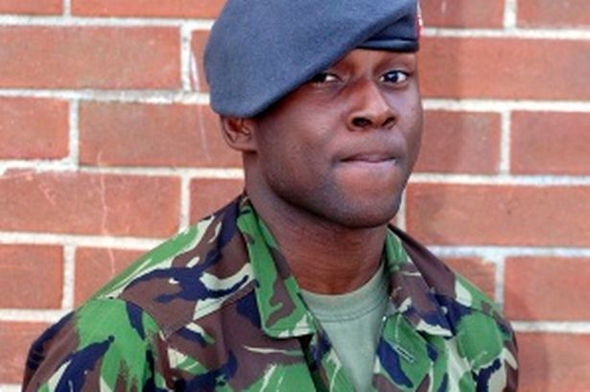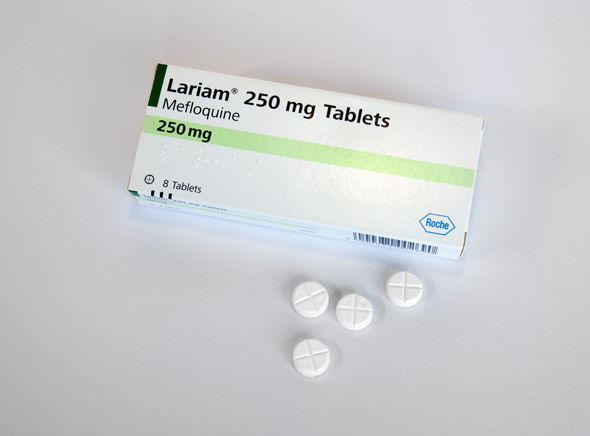MoD accused of ‘negligence on a grand scale’ as troops sue over controversial malaria drug

BRITISH troops who say they were left with serious mental health side effects after taking a controversial anti-malaria drug are taking legal action against the Ministry of Defence.
The group of armed forces veterans say they have suffered hallucinations, severe depression, sleep deprivation and anxiety as a result of the medication, which is licensed for use in 42 countries.
They are seeking answers over the use of the drug after it was handed out to hundreds of British troops.
Military injury lawyers have received more than 30 enquiries from people claiming to be affected by Lariam and the MoD has been notified of several claims against them.
Lariam was prescribed to British troops operating overseas despite concerns regarding mental health side effects being known and other anti-malaria drugs being available.
The once-a-week pill is known to cause vivid nightmares, anxiety and depression.
Ahmed Al-Nahhas, an associate in the military claims team at Bolt Burdon Kemp, said the action was the "first step to holding the MoD to account for what amounts to negligence on a grand scale".
Describing it as a "failure of the MoD's duty of care", he added: "Just because Troops ultimately do what they are told, and take what they are given, doesn't mean that their superiors should act with abandon when it comes to their safety".
One of those who claims to have been affected by the drug is Drum Major Sergeant Daniel Swain, who took Lariam in 2010 while stationed in Cyprus.
He was then deployed to Camp Bastion in Afghanistan but suffered an incident described as an "out of body experience" while training troops.
Mr Swain, 36, from Ely in Cambridgeshire, who served in the British Army from 1996 to 2013, said: "I was taking Lariam consistently for a few months but the incident in Afghanistan really shocked and scared me.
"It was a really strange experience and I basically lost three days of my life where it was like an out of body experience and everything I did was like watching myself in a dream.
"I visited the doctor and saw psychiatrists but I didn't feel like they were taking me seriously and just put everything down to PTSD."
In February, Express.co.uk revealed how hundreds of British troops who were given the controversial anti-malarial went on to be diagnosed with mental health problems.
Around two per cent (354) of British soldiers who were prescribed mefloquine — as it is also known — were subsequently assessed as having a mental health disorder.
The MoD says its medical advice is based on the current guidelines set out by Public Health England and that the figures do not prove the onset of mental health conditions are a direct result of taking the drug.
However, most NATO countries have stopped using it and momentum is building behind a campaign to have its use banned.
Another veteran who claims to have suffered psychological problems while taking the drug is Ade Jerry, who served in the Royal Army Medical Corps of the British Armed Forces from 2006.
Mr Jerry was deployed to Afghanistan in 2008 and in 2011. On both occasions he was prescribed Lariam and took the drug prior to deployment, during service, and for several weeks after his return to the UK.
During his first deployment he developed symptoms of depression.
He initially thought his low mood was down to being away from friends and family, however the symptoms persisted until shortly after he left the army in October 2014.
Mr Jerry said: "It was a strange feeling. I was really suspicious of others and didn't want to be around other people which is not like me.
"I struggled with depression and also had intense nightmares throughout both my tours of Afghanistan which woke me up shaking and in cold sweats.
"I didn't understand at the time why I had developed these symptoms and I tried to seek help from medical staff within the army but I don't feel as though I got the appropriate support to deal with my mental health problems and it was never suggested that they may have been associated with Lariam."
Kevin Timms, a lawyer at Irwin Mitchell who is leading the firm's Lariam case against the MoD, said: "The serious side effects of the use of Lariam have been well known for a number of years, so it is very concerning that the drug was still the first-choice anti-malaria drug for our troops until very recently.
"Through our work we have seen first-hand the devastating effects that Lariam has had on the lives of service personnel and their families.
"These brave men and women risked their lives to serve our country and we need to ensure that we are doing everything within our power to make sure their health and well-being is a top priority for the MoD.
"By accepting that they have used the drug outside of the manufacturer's guidelines, the MOD has taken the first step to redressing military personnel concerns.
"We hope this is also the first step to the MoD working with us in a collaborative manner to resolve the complaints of the troops for whom we act."
The MoD says Lariam is not used widely within the military, with more than 100,000 UK Armed Forces personnel — both regulars and reserves — issued with anti-malarial drugs other than mefloquine over the last eight years.
A spokesperson said: "No anti-malarial treatments are without associated side effects but it is crucial we protect our personnel from this potentially fatal disease upon deployment to affected areas.
"We need to be able to use the most appropriate drug in order to ensure resistance.
"Mefloquine is used throughout the world but is not prescribed widely in the UK military, and only after an individual risk assessment."
Политика конфиденциальности | Правила пользования сайтом












